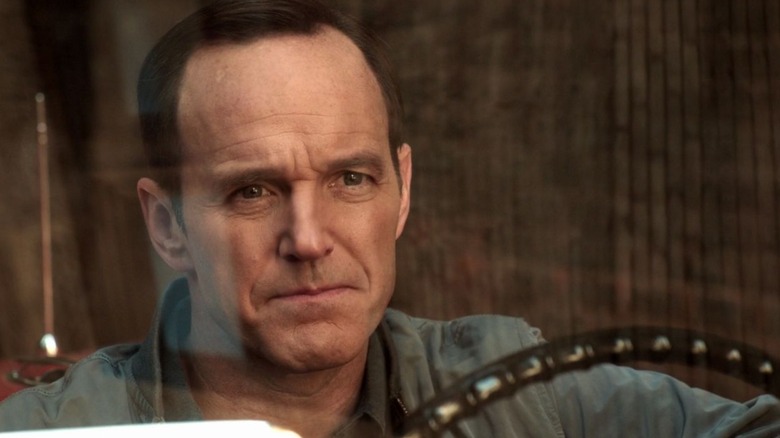SHIELD Agent Phil Coulson Warns Congress About The Threat Of Life-Model Decoys
As SAG-AFTRA continues to strike in support of actors' right to keep terrible AI-generated look-alikes out of Hollywood, one performer is taking the fight against unauthorized artificial intelligence deep fakes somewhere totally new: to Congress.
Actor Clark Gregg, who's best-known for his portrayal of S.H.I.E.L.D. Agent Phil Coulson throughout the Marvel Cinematic Universe, testified yesterday in front of the U.S. Congress as it mulls over the new NO FAKES Act. According to language put forth by Senator Chris Coons (D-Delaware), the act is "a bipartisan proposal that would protect the voice and visual likeness of all individuals from unauthorized recreations from generative artificial intelligence." Gregg spoke to Congress for over five minutes about the problems with unauthorized AI and the need for stronger data privacy protections in a world where a person's voice or image can be repurposed for any means without consent.
"Actors, like anyone else, deserve to have their biometric information protected from unauthorized access and use," Gregg said in his statement to Congress (shared via Twitter), noting that the practice of unauthorized AI reproductions is deceptive and an invasion of privacy — plus, a threat to the job market for artists of all kinds. The actor cited recent high-profile examples of rogue AI projects, including a fake Tom Hanks selling insurance and a hit song that apparently used the voices of The Weeknd and Drake without their consent. Gregg also got personal, noting with good humor that though he never worked in adult entertainment, he recently saw Ai-generated clips of his likeness used in porn. "I was recently sent very lifelike images of myself engaged in acrobatic pornography with, I will admit, abs that I would kill for. It's funny but it's also terrifying."
Deepfakes impact everyone, not just actors
If passed, the NO FAKES Act, which has the full title "Nurture Originals, Foster Art, and Keep Entertainment Safe Act of 2023," would create a federal law giving performers the right to control over digital likeness of their own names, faces, and voices. If deep-fake porn, advertisements, or other works were created without the consent of an actor or artist, it would be illegal. Similar to other copyright laws, the NO FAKES Act includes exceptions for fair use parody, satire, or criticism, and will no longer apply 70 years after a performer's death (per The Verge).
It's especially fitting to see Gregg speaking with Congress, given that his TV series "Agents of S.H.I.E.L.D." included several plotlines about sinister doubles, plus one in which AI was used in a Life-Model Decoy program that basically made clones to be used as body doubles. On the stand yesterday, Gregg embodied his Marvel character's heroism by outlining the threat of these technologies not just to actors, but to the whole world. "Biometric information — even something as routine as a voice print or a facial map — can be exploited in ways that pose a danger not just to the broader public, but to national security." You tell 'em, Agent Coulson!

